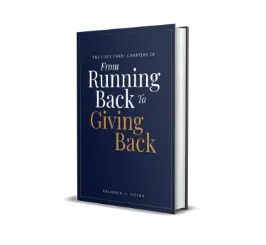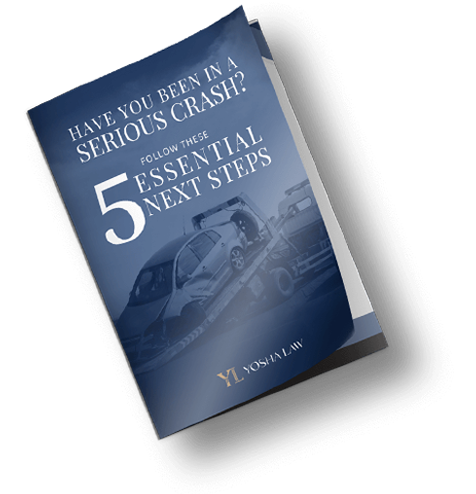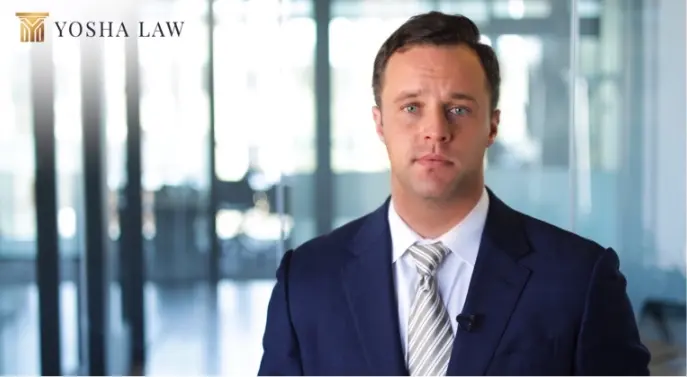When you’re injured in a car accident and someone else is at fault, you deserve justice. You’re faced with unexpected costs and possibly life-changing personal injury, and the settlement offer from the insurance company doesn’t even begin to cover your medical bills or pain and suffering. A car accident lawsuit in Indianapolis may be the only way for you to receive the compensation you’re owed.
But how can you prove fault? How can you strengthen your claim to win your at-fault car accident case? Unfortunately, a court case win and awarded damages aren’t ever guaranteed.
Nevertheless, by following proven strategies and tips, you may increase your chances of a successful outcome so that you can concentrate on recovery and picking up the pieces of your life after your collision.
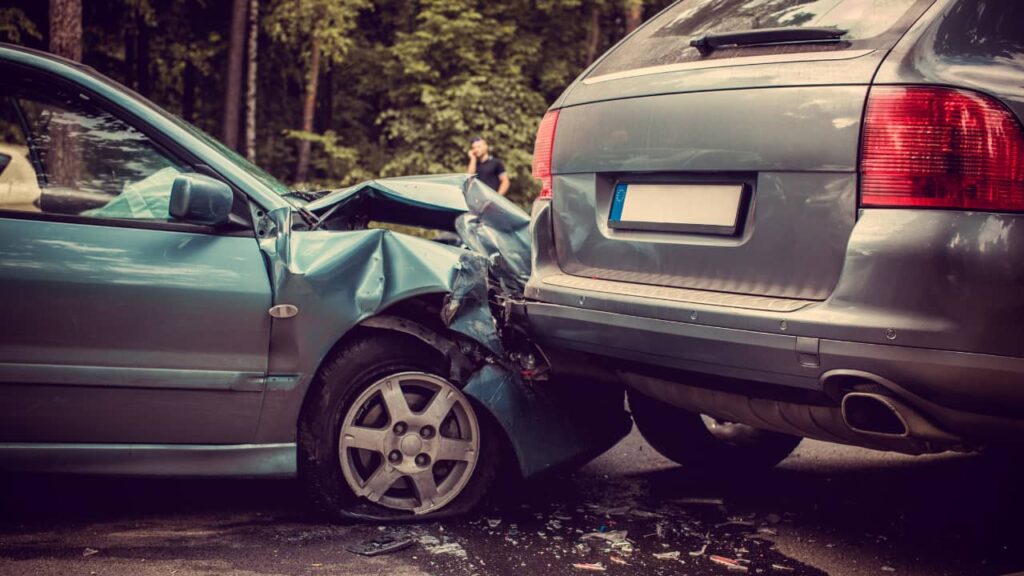
- What is an at fault car accident?
- Common causes of an at fault car accident
- Indiana comparative fault law
- How to determine fault after a car accident
- 7 tips to help you win your car accident case
What is an at-fault car accident?
An at-fault car accident is a collision that was clearly caused by someone’s negligence. For example, if a careless or distracted driver runs a red light and t-bones your vehicle, causing property damage and personal injury, this person is at fault for your accident.
On rare occasions, after you file a claim with the at-fault party’s insurer, you may be offered fair compensation for the damages you’ve incurred. However, if you choose to file a personal injury lawsuit in your car accident case, fault is ultimately determined by a judge or jury.
Accidents that aren’t considered “at-fault” include a collision fully caused by inclement weather, or accidents when all involved parties are found to hold equal liability.
Common causes of an at fault car accident
In 2022, 2.4 million people were injured in U.S. car accidents, and the National Highway Traffic Safety Administration (NHTSA) reports that in 2023, 40,990 fatalities occurred as a result of vehicle collisions.
In Indiana in 2022, there were 483 car accidents that involved more than one vehicle. The overwhelming majority of these collisions were caused by driver error and gross negligence.
Some of the most common causes of at-fault car accidents include:
- Careless driving (for example, failure to yield or passing a stopped school bus)
- Driving under the influence of alcohol or drugs
- Reckless driving (such as aggressive driving or illegal lane changes)
- Excessive speed
- Failure to stop
- Texting or talking on a handheld phone while driving
- Tailgating
Indiana comparative fault law
Indiana is one of over a dozen states with a comparative fault (also known as comparative negligence) law in place, and it can have a great impact on the outcome of your at-fault car accident case.
In Indiana, if you’re 50%-100% at fault for your accident, you will not have a legal claim to compensatory damages. If you bear 1%-50% of the liability for your collision, the amount of your monetary compensation will decrease. Thus, it’s important to prove that another party holds all of the responsibility for your accident.
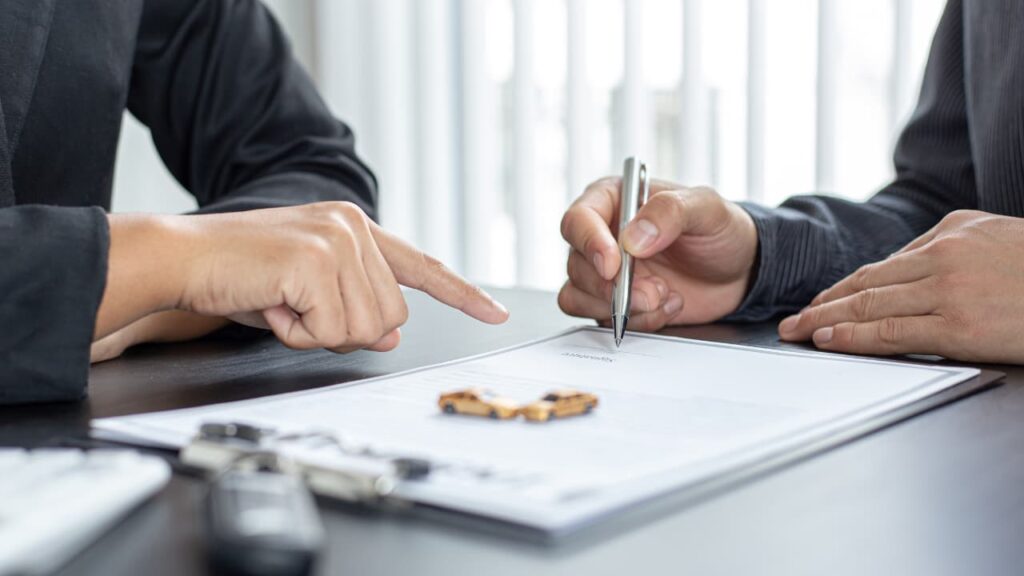
How to determine fault after a car accident
There are four elements that you have the burden of proof to establish in order to prove another driver is at fault in your car accident case:
- Duty of Care:
Operating a vehicle with a valid license is a privilege. When you’re on the road, you assume a duty of care to your fellow drivers. Essentially, this means that you must avoid intentionally or unintentionally causing harm to others.
In an at-fault car accident, you must establish the duty of care held by the defendant in your case.
- Breach of Duty of Care:
When an at-fault party in your car accident case fails to meet the duty of care standards, this is considered a breach of their responsibility. This must also be proven in order to win your case.
- Causation:
Causation stems from the breach of duty of care. If the defendant in your case directly caused your accident as a result of their breach, this is considered causation.
- Damages:
Damages are the categories of compensation that you can seek in your at-fault car accident case, and fall under three categories: economic damages, non-economic damages, and punitive damages.
You’ll need to establish that the personal injury and monetary losses you’ve incurred were a direct result of the negligence of the defendant in your case.
7 tips to help you win your car accident case
In a car accident case, your success is never predetermined. However, at Yosha Law, we’ve found that there are proven strategies that always work to strengthen your case and increase your chances of winning.
After an accident, you may validly feel overwhelmed, stressed, and reeling. Nevertheless, it’s important to remember the following tips to give you a greater probability of winning your at-fault car accident case.
Gather evidence at the scene
If possible, in the immediate aftermath of your car accident, document the accident with photos and video of your car, debris on the road, skid marks, and more. If there are eyewitnesses, ask them to remain on the scene until first responders arrive to give a recorded statement of what they saw.
Gathering this evidence is a proven strategy to help you to win your case.
File a police report
In Indiana, filing a police report is a pivotal aspect of building your case. As soon as you’ve been able to safely pull over or move away from oncoming traffic, you should call 911.
The police officers who are first on the scene will take statements and contact information from all parties involved in your accident, document any obvious injuries, and will conduct a preliminary investigation to help determine who is at fault. Eyewitnesses will also be asked to give statements.
You’ll need a police report when you file your initial insurance claim, and using this report as a foundation for your personal injury claim can prove to be a vital strategy to winning your at-fault car accident case.
Seek medical attention
Even if your injuries are minor, it’s important to seek medical attention after your accident. Adrenaline and shock can mask the severity of your injuries, and injuries that feel minor may increase in severity.
For example, if you have a concussion or other traumatic brain injury (TBI), or are suffering from internal bleeding, you may not notice until the days following your collision.
Unfortunately, the courts don’t consider self-diagnosis valid evidence of personal injury. Documentation of medical diagnosis and treatment is crucial to supporting your claim of pain and suffering, and factors heavily in determining any monetary amount awarded by a judge or jury.
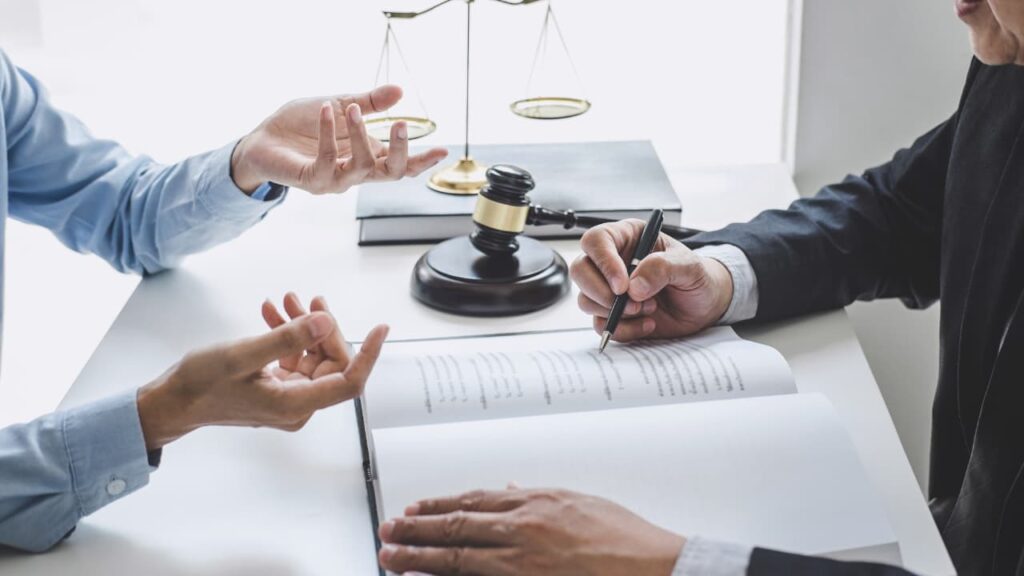
Hire a personal injury lawyer
Although you can file a lawsuit without consulting a lawyer, you may find the complexities of determining fault (and the ability to win your case) challenging. The right attorney can advise you even before you file your insurance claim.
You should hire a lawyer after a car accident to help you navigate through the nuances of the legal process and help you to receive justice for the trauma you’ve endured.
An Indianapolis personal injury lawyer with a proven track record can use effective strategies to strengthen your case and may offer you the best chance of winning.
You Get ONE Shot At Full Justice. We Make Sure You Take It.
*Available 24/7 & Obligation-Free
File an insurance claim
Before you file a personal injury lawsuit for your at-fault car accident, you’ll need to file a claim with both your insurer and the at-fault driver’s insurance company. You’ll be assigned a claim number and an insurance agent who will be in charge of determining what you’re owed.
Insurance companies are notorious for presenting quick, lowball settlement offers or denying claims altogether. Your lawyer can help you to determine if the monetary figure offered by an insurer is just, or if you should pursue a greater amount.
It can be tempting to accept an offer without giving much thought to future costs you may incur because of your injury, but once you’ve accepted a settlement offer, you may not be able to build your case or explore further legal recourse.
Don’t share case details on social media
Everything you post on a social media platform lives forever — a good truth to remember for every aspect of your life, but it’s vital to be aware of this if you file a car accident claim. Even if you delete posts related to your case, insurance companies and opposing counsel have IT teams that can prove you’ve publicly shared information that could hurt your legal claim.
After you’ve filed an insurance claim or begun the process of a lawsuit, anything you post on social media that is case-adjacent can (and probably will) be used to poke holes in your case and dismantle your personal injury claim.
File your lawsuit within the Statute of Limitations
Most states have a statute of limitations in place that places a time limit on how long you have to legally file an at-fault car accident claim. Indiana state law § 34-11-2-4 allows plaintiffs two years from the date of an accident to file a case.
In order to win your case, it’s important to ensure you meet this deadline. If you wait too long to file your claim, you may not have further legal recourse. However, exceptions are made if you’re filing on behalf of a minor, or if you were mentally incapacitated at the time of your accident.
At Yosha Law, our personal injury lawyers have helped countless clients in their pursuit of justice. We can help you utilize these tips and proven strategies to win an at-fault car accident case. You shouldn’t have to deal with the aftermath of your accident alone. We’re committed to supporting you through every step of your healing journey and to help you find the justice you deserve.
Contact us for a free case evaluation today.

